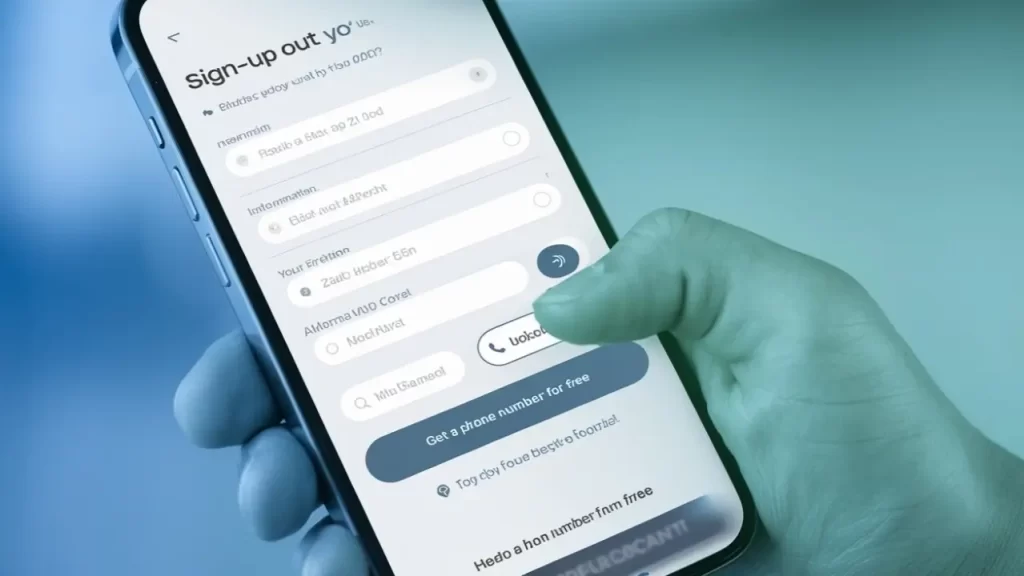In today’s digital age, phone numbers play a critical role in various aspects of personal and professional life. There are many occasions when you might need a random phone number. It could be for online registration, marketing campaigns, or simple testing. Generating random phone numbers is a process that can serve different purposes, ranging from ensuring privacy to testing applications. The emergence of random numbers is also a reflection of tech innovation.
Why Generate Random Phone Numbers?
- Privacy Protection: When registering on websites, signing up for newsletters, or creating accounts on online platforms, many users choose not to provide their real phone numbers to protect their privacy. A random phone number allows users to maintain anonymity while still using services.
- Testing and Development: For software developers, testing phone number input fields and functionalities is an essential part of the development process. Random phone numbers can help simulate real-world data, ensuring that the system works seamlessly with various types of inputs.
- Marketing Campaigns: Marketing teams may require phone numbers to conduct surveys, send promotional messages, or perform other marketing activities. Random phone numbers can be used to create test groups or ensure the campaign reaches a wide range of potential customers.
- Avoiding Spam: Some websites and services may request a phone number to access certain features or content. Using a random number can prevent personal phone numbers from being exposed to potential spam calls or messages.

Methods to Generate Random Phone Numbers
There are different ways to generate random phone numbers, ranging from manual methods to automated tools. Below are some of the most common methods:
1. Online Random Phone Number Generators
Many online tools can generate random numbers based on specific country codes and formats. These generators are widely used for both personal and business purposes. Some tools even allow customization, such as selecting the region or specifying the type of phone number (mobile, landline, etc.).
2. Random Number Algorithms
A more technical approach involves using algorithms to generate random numbers that fit a specific number format. Developers can create custom algorithms to generate numbers that follow country-specific rules. For instance, phone numbers in the United States follow a specific format (e.g., (XXX) XXX-XXXX), while numbers in the UK have a different structure.
3. Using Placeholder Numbers
Developers often use placeholder numbers in testing and development. For instance, American television shows and movies commonly use the numbers “555-0100” to “555-0199” to avoid displaying real phone numbers. Developers can use similar formats for testing purposes.
How to Use Random Phone Numbers
You can use random numbers in a variety of situations. Here are some examples of how you might apply them:
- Test Applications and Websites: If you’re developing a mobile app or a website that involves phone number input, it’s essential to test your forms with random data. Using random phone numbers ensures that the application or website can handle a wide variety of phone number formats, which is especially important for global platforms that cater to users from different countries.
- Verify Functionality: Many websites or apps ask for a phone number as part of the registration process to verify user identity. Using a random number can allow developers to test these functionalities without the need for real numbers. It helps to ensure that phone number validation works correctly.
- Create Temporary Accounts: Some websites offer limited services or trials that require a phone number. Using a random number can help you access these trials without exposing your personal information.
- Generate Fake Phone Numbers for Marketing: If you’re running a campaign and need a list of numbers to send bulk messages or notifications, you can use random phone numbers for testing purposes. It’s especially helpful when you want to simulate data for customer outreach or surveys without actually contacting real users.

Potential Risks of Using Random Phone Numbers
While generating and using random phone numbers is convenient for various purposes, there are some potential risks involved. Here’s what you need to be aware of:
- Legal Concerns: In some jurisdictions, using fake or random phone numbers for fraudulent purposes may be illegal. Always ensure that you are complying with the relevant laws in your country when using random phone numbers for any purpose, especially for marketing or business-related activities.
- Unintended Consequences: If you use a random number that happens to belong to a real person, you may inadvertently cause inconvenience. For example, someone might receive unsolicited calls or messages if their phone number is accidentally used in a marketing campaign.
- Data Privacy Issues: Random phone numbers may sometimes be used in conjunction with other personal data. If these numbers are not handled properly, they may lead to privacy violations, especially if they are linked to real users without proper consent.
- Inaccurate Testing Results: In some cases, using random numbers might lead to testing results that are not fully reflective of real-world scenarios. For example, if a test phone number is marked as invalid, it might not represent how the system will behave with actual users’ phone numbers.
Conclusion
Generating random phone numbers has many practical uses, from enhancing privacy to supporting software development and marketing efforts. By using online tools, individuals and organizations can create phone numbers. They can also use random number algorithms or placeholder numbers. These phone numbers serve their specific needs. However, it’s essential to be mindful of the potential risks and legal considerations involved in using fake phone numbers. As long as it’s used responsibly, generating it can be a useful and versatile tool in a variety of scenarios.